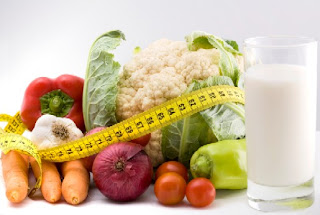- Back to Home »
- Weight Loss »
- Weight Loss Diets
Posted by :
Moraliss
Sunday, February 3, 2013
 Why do I need to lose weight if I am overweight?
Why do I need to lose weight if I am overweight?Being overweight increases your risk for high blood pressure, heart disease, stroke, diabetes, and some forms of cancer. If you are overweight, losing just 5 to 10% of your weight and keeping it off lowers your risk for developing most of these diseases. Your healthcare provider can give you a good sense of whether you have an increased risk of health problems because of your weight.
What can I do to lose weight?
Changes that will help you lose weight include :
- A better understanding of your own health.
- Healthier eating habits.
- A plan for rewards for following your program to lose weight.
- More physical activity.
Diets for losing weight involve :
- Making smart choices from every food group: fruits, vegetables, grains, milk products, meat, and fats
- Finding a balance between how much food you eat and how much exercise you get
- Getting the most nutrition out of your calories.
If you are trying to lose weight, this most often means eating fewer calories and avoiding some foods. A weight loss diet needs to give enough nutrition and a good variety of satisfying foods as well as fewer calories.
What works best is a gradual change in your habits of eating and physical activity--a change that you can continue for the rest of your life. The ideal diet is one that helps you lose weight slowly but steadily, so you can keep a healthy weight after you have reached your goal. The best weight loss plan is one that fits your own needs and food preferences. Ask your healthcare provider for a safe, healthy, and effective weight loss program.
What foods should I choose to lose weight?
A healthy eating plan is one that :
- Emphasizes fruits, vegetables, whole grains, and beans.
- Includes fat-free or low-fat milk and milk products.
- Includes lean meats, poultry, fish, eggs or egg whites, nuts, seeds, and soy foods.
- Is low in saturated fats, trans fats, cholesterol, salt (sodium), and added sugars.
Keep a food diary. As soon as you eat or drink, write it down. It may be helpful to use a small pocket diary. Seeing what you eat and drink will help you learn more about your eating patterns and food habits.







